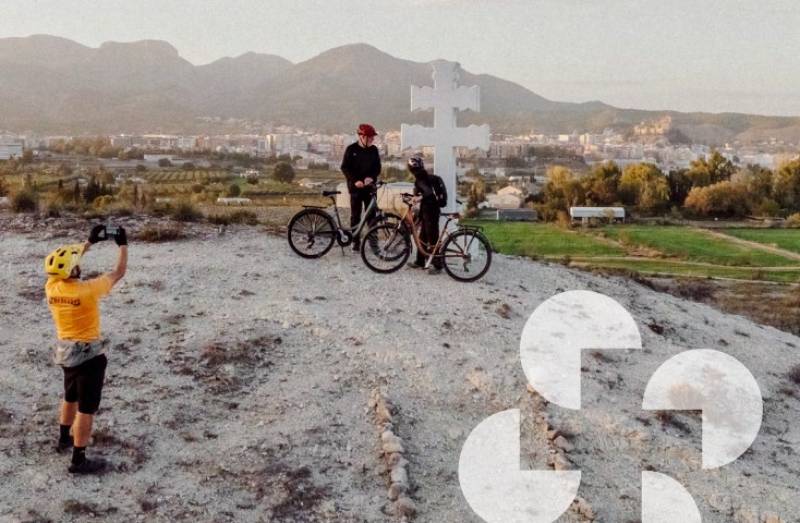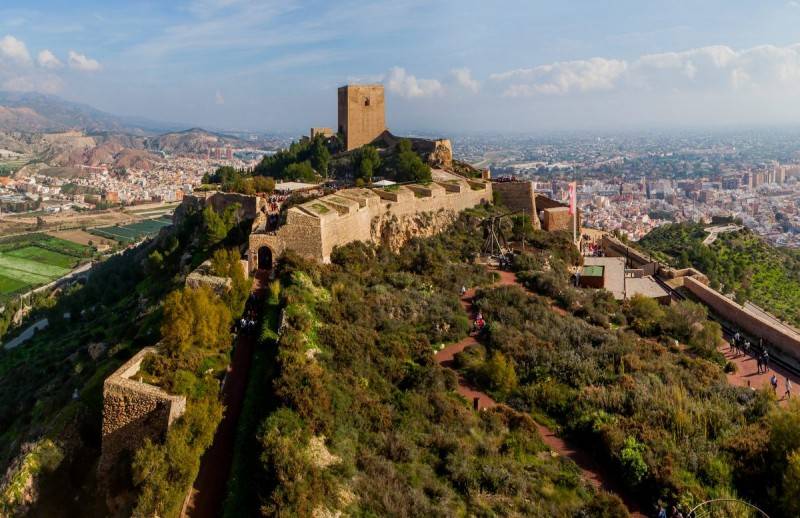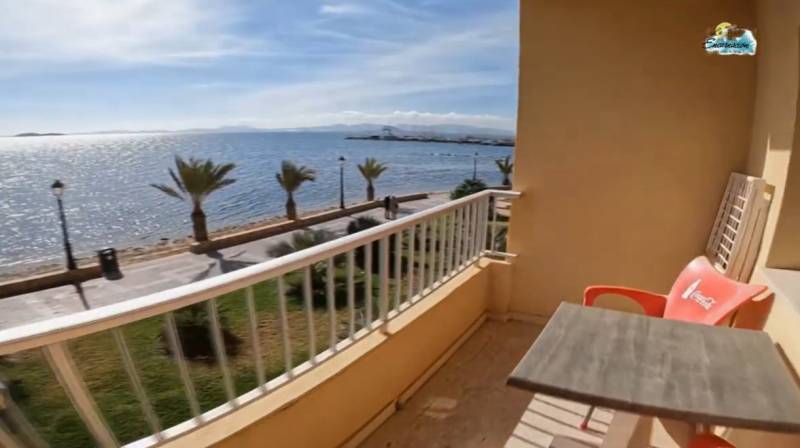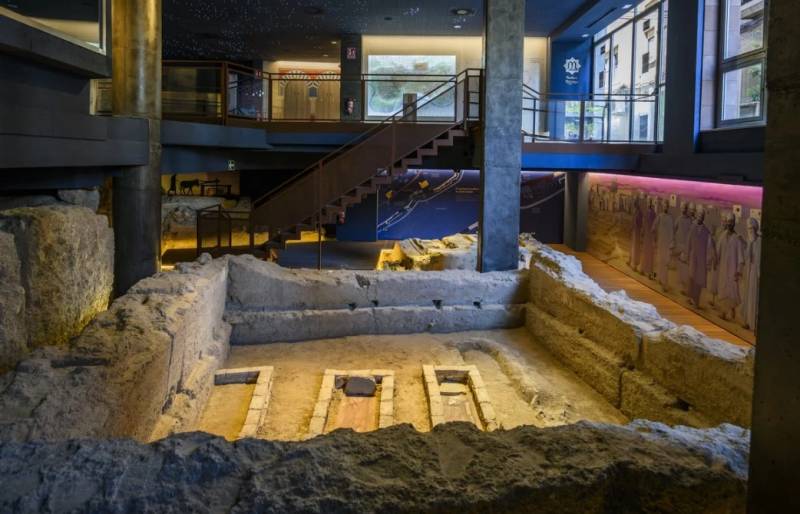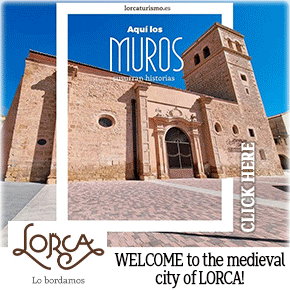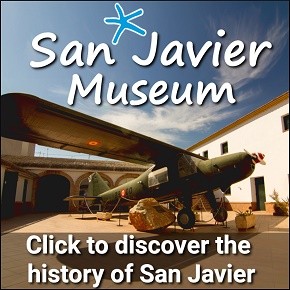- Region
- Águilas
- Alhama de Murcia
- Jumilla
- Lorca
- Los Alcázares
- Mazarrón
- San Javier
-
ALL AREAS & TOWNS
- AREAS
- SOUTH WEST
- MAR MENOR
- MURCIA CITY & CENTRAL
- NORTH & NORTH WEST
- TOWNS
- Abanilla
- Abarán
- Aguilas
- Alamillo
- Alcantarilla
- Aledo
- Alhama de Murcia
- Archena
- Balsicas
- Blanca
- Bolnuevo
- Bullas
- Cañadas del Romero
- Cabo de Palos
- Calasparra
- Camping Bolnuevo
- Campo De Ricote
- Camposol
- Canada De La Lena
- Caravaca de la Cruz
- Cartagena
- Cehegin
- Ceuti
- Cieza
- Condado de Alhama
- Corvera
- Costa Cálida
- Cuevas De Almanzora
- Cuevas de Reyllo
- El Carmoli
- El Mojon
- El Molino (Puerto Lumbreras)
- El Pareton / Cantareros
- El Raso
- El Valle Golf Resort
- Fortuna
- Fuente Alamo
- Hacienda del Alamo Golf Resort
- Hacienda Riquelme Golf Resort
- Isla Plana
- Islas Menores & Mar de Cristal
- Jumilla
- La Azohia
- La Charca
- La Manga Club
- La Manga del Mar Menor
- La Pinilla
- La Puebla
- La Torre
- La Torre Golf Resort
- La Unión
- Las Palas
- Las Ramblas
- Las Ramblas Golf
- Las Torres de Cotillas
- Leiva
- Librilla
- Lo Pagan
- Lo Santiago
- Lorca
- Lorquí
- Los Alcázares
- Los Balcones
- Los Belones
- Los Canovas
- Los Nietos
- Los Perez (Tallante)
- Los Urrutias
- Los Ventorrillos
- Mar De Cristal
- Mar Menor
- Mar Menor Golf Resort
- Mazarrón
- Mazarrón Country Club
- Molina de Segura
- Moratalla
- Mula
- Murcia City
- Murcia Property
- Pareton
- Peraleja Golf Resort
- Perin
- Pilar de la Horadada
- Pinar de Campoverde
- Pinoso
- Playa Honda
- Playa Honda / Playa Paraíso
- Pliego
- Portmán
- Pozo Estrecho
- Puerto de Mazarrón
- Puerto Lumbreras
- Puntas De Calnegre
- Region of Murcia
- Ricote
- Roda Golf Resort
- Roldan
- Roldan and Lo Ferro
- San Javier
- San Pedro del Pinatar
- Santiago de la Ribera
- Sierra Espuña
- Sucina
- Tallante
- Terrazas de la Torre Golf Resort
- Torre Pacheco
- Totana
- What's On Weekly Bulletin
- Yecla


- EDITIONS:
 Spanish News Today
Spanish News Today
 Alicante Today
Alicante Today
 Andalucia Today
Andalucia Today
The Museo Parroquial in San Javier
Local history in a nutshell at the museum in the parish church of San Francisco Javier
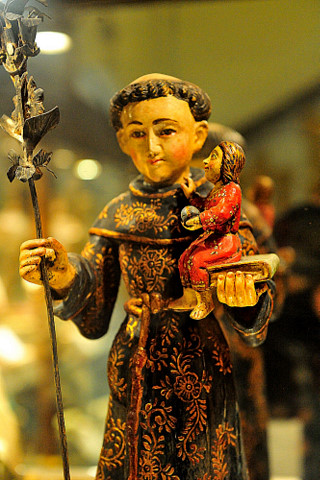 The Museo Parroquial de San Javier is located within the parish church of San Francisco Javier and was inaugurated in 1998 following the ffirts of José Ballester Esparza and Ana Díez Moreno, both teachers at a local primary school.
The Museo Parroquial de San Javier is located within the parish church of San Francisco Javier and was inaugurated in 1998 following the ffirts of José Ballester Esparza and Ana Díez Moreno, both teachers at a local primary school.
It contains a number of pieces donated to the church or which formerly belonged to the church and exhibits relate mainly to religious activities, including 17th century embroidered robes, sculptures, pilgrimage tokens and memorabilia, historical documents and other items related to the history of San Javier. In addition, a collection of miscellaneous religious articles and sculptures has been amassed, including a 16th century cross, a tiny miniature nativity scene made in Africa in the early 20th century and simple tokens of faith and sculptural pieces.
It is also possible to climb the stairs at the back of the room and enjoy the view down over the church alongside the niche occupied by a figure of San Francisco Javier.
At Christmas the plaza outside the church is occupied by the "Belén monumental", a huge nativity scene with a truly Murcian feel to it. Another belén is set up inside the church and there is usually an of beléns over the festive season.
Opening Times
Tuesday to Saturday 10.30 to 13.30. Admission is free although but visitors are invited to leave a donation to help cover ongoing costs.
Room A contains a series of holy robes which belonged to priests in the 17th century, along with medallions, awards and objects of worship formerly owned by well-known men of the church.
Room B contains religious images, sculptures (mostly in wood and painted).
History
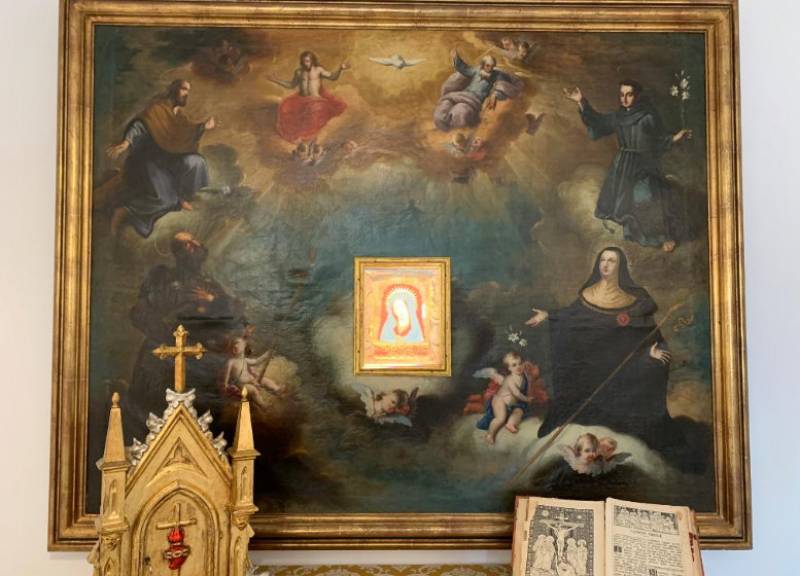 At the beginning of the 17th century the area around San Javier was sparsely populated by just a few families carrying out fishing and agricultural activities, threatened all the time by the menace of Berber pirate raids. Previously the area had been inhabited by a succession of cultures, and since the Middle Ages had been undergoing a slow repopulation while Christianity was by now the dominant religion.
At the beginning of the 17th century the area around San Javier was sparsely populated by just a few families carrying out fishing and agricultural activities, threatened all the time by the menace of Berber pirate raids. Previously the area had been inhabited by a succession of cultures, and since the Middle Ages had been undergoing a slow repopulation while Christianity was by now the dominant religion.
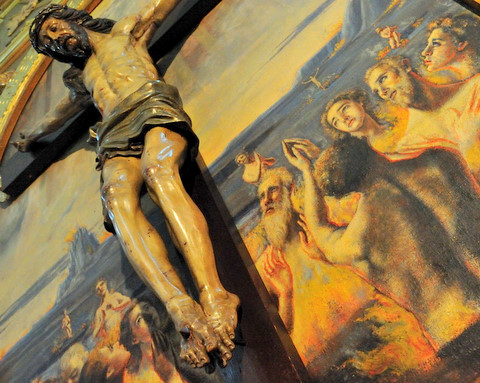 At this time the residents decided to build a church in honour of San Francisco Javier, who was associated with the healing of fevers and illnesses caused by the proximity to marshes and swamps - the area was then far wetter than it is today and such illnesses were a common problem.
At this time the residents decided to build a church in honour of San Francisco Javier, who was associated with the healing of fevers and illnesses caused by the proximity to marshes and swamps - the area was then far wetter than it is today and such illnesses were a common problem.
The church was built in roughly the same location as the current building, at the crossroads of the former Roman road which ran along the Mediterranean coastline and the road which linked the coast at the city of Murcia. Around it a cluster of houses grew, gradually spreading to incorporate the hamlet of La Calavera and attracting population from the mountain of Cabezo Gordo.
In 1698 Bishop Francisco Fernández Angulo named it a parish church and in 1699 work began to build a new church, which was completed in 1787 and is the one which still exists today.
During the Spanish Civil War (1936-39) the church was set on fire and became structurally unstable. Decoration and historical statues were destroyed along with the majority of the church and municipal records, although residents did manage to save some of the artworks from the fire.
It has since undergone a complete restoration, while sculptures rescued from the fire have been restored and replacements made for those which were lost. One of the most beautiful pieces is Christ crucified, on the right hand wall entering the church. This was pulled out of the fire by a local lady who hid it in her home until after the war, when it was returned to the church. It is slightly darkened by the effects of the flames, but is a magnificent piece, made by an anonymous artist in the late 16th or early 17th century and is fully articulated, so that it can be laid down for use in processions or hung on a cross.
San José was also rescued from the fire and underwent two restoration procedures to bring him to his current glory.
Sadly, the church had held sculptures by the master sculptor Francisco Salzillo, due to the patronage of the Riquelme family who owned land in the municipality, but these were lost in the fire.
San Francisco Javier
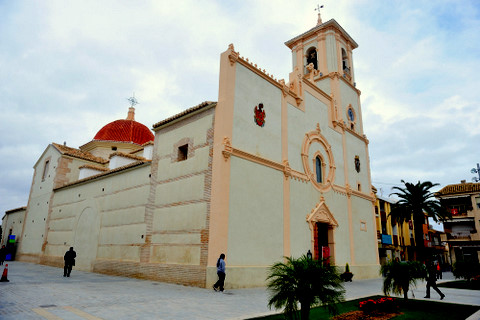 San Francisco Javier (1506-52) was a missionary Jesuit priest who was best known for his missionary work in the Far East. For 10 years he preached throughout India and Japan, converting thousands to Christianity, and he died in 1552 on the island of Sanchon Sancian, at the gates of China.
San Francisco Javier (1506-52) was a missionary Jesuit priest who was best known for his missionary work in the Far East. For 10 years he preached throughout India and Japan, converting thousands to Christianity, and he died in 1552 on the island of Sanchon Sancian, at the gates of China.
He was known as the the "giant of missionary history" and was named by Pope Pius X as the official patron of overseas missionaries. During his extraordinary lif ehe battled with illness and adversity as he worked his way through India, China, Japan and Africa.
He was canonised in 1622.
Parroquia San Francisco Javier
Plaza de la Iglesia (Calle Luis Garay, 6, 30730)
San Javier
Telephone 968 571085
For more information about the municipality of San Javier go to the home page of San Javier Today.
staff.inc.ali









